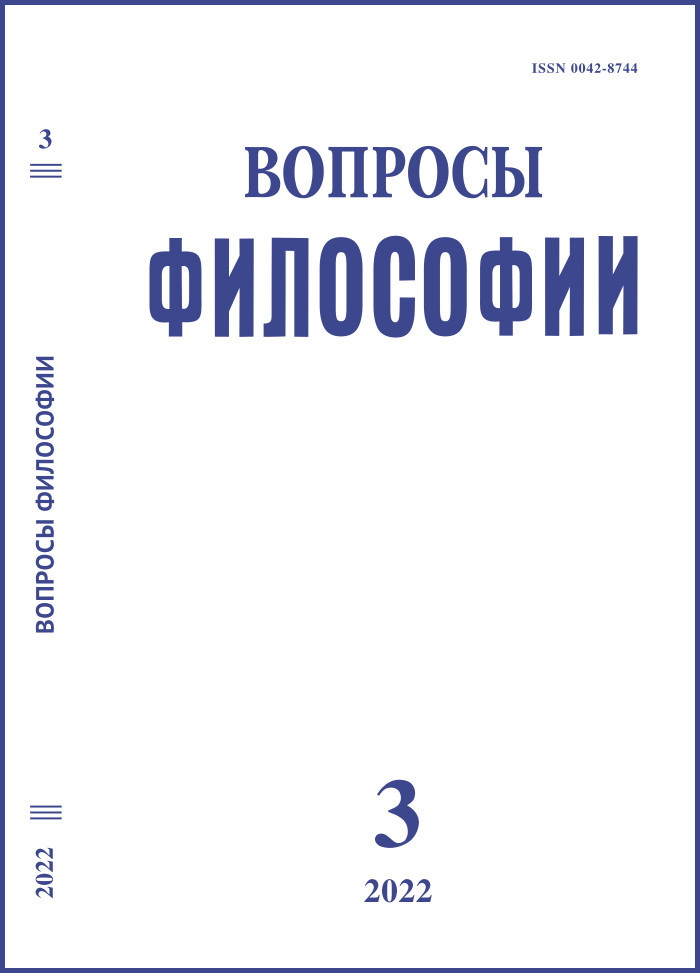Transformation of The Philosophical and Soteriological Principles of The Buddhism in China
DOI:
https://doi.org/10.21146/0042-8744-2022-3-182-192Keywords:
Buddhism, Chinese philosophy, transformation, soteriology, true essence.Abstract
The article examines the process of transformation of the philosophical and soteriological teachings of Buddhism in China as a result of the interaction of the Chinese and Indo-Buddhist civilizations. The substantiation is given that the transformation of Buddhism was a natural process of adaptation of Buddhism in China, which did not distort the original principles of maternal Buddhism. It represented a logical process for the further development of Buddhism in the Far East. It is shown that Buddhism, which brought new soteriological and philosophical principles to this country, collided with traditional religious beliefs and a rich philosophical tradition, which necessitated its adaptation to the local mentality and adaptation to the Chinese sociocultural bedrock. A comparative analysis of the religious beliefs of the Chinese and Indo-Buddhist religious principles, as well as the philosophical argumentation of Buddhism and traditional Chinese philosophy is given. The article notes the difficulties that Buddhism faced on its way, when entering the Chinese socio-cultural environment, as well as the objective and subjective conditions that contributed to the spread of soteriological and philosophical attitudes in China. The canonical texts of Mahayana Buddhism are indicated, the content of which became accordant with the Chinese worldview and served for Tao Sheng to put forward his famous thesis about the instant attainment of Buddhahood, which served as the starting point for the development of a new soteriological trend in the Far East. The analysis of the process of adaptation of soteriological principles to the Chinese mentality is given, the ontologization of the philosophical attitudes of Buddhism as a result of its collision with the natural-philosophical teaching of Chinese philosophy is shown. It is substantiated that the formation of a new soteriological direction of Buddhism in China influenced the philosophical content of Buddhism, which determined the formation of a qualitatively new stage in the development of Buddhism in the Far East.
Downloads
Published
Versions
- 2025-02-06 (2)
- 2022-03-31 (1)

